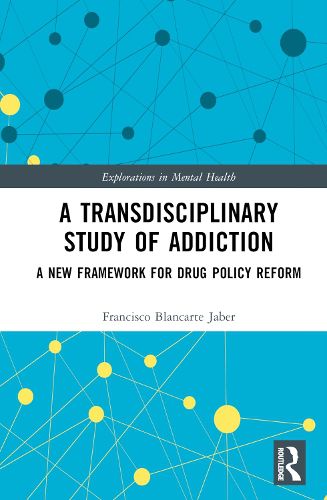Readings Newsletter
Become a Readings Member to make your shopping experience even easier.
Sign in or sign up for free!
You’re not far away from qualifying for FREE standard shipping within Australia
You’ve qualified for FREE standard shipping within Australia
The cart is loading…






Using novel, bioethical framing alongside critical and comprehensive analysis of harm reduction approaches, this cutting-edge book addresses the multifaceted and transdisciplinary issue of drug addiction in society, exploring how addiction can be conceptualized from various disciplinary perspectives for positive policy outcomes.
The book discusses the philosophical concepts of agency and action within addiction, and how this can support the foundations needed to identify the most effective and ethical harm reduction strategies within policy frameworks. Foregrounding the implications for this notion of agency, chapters trace the evolution of the concept of addiction through the centuries and examine contemporary understandings from neuroscience, philosophy, bioethics, and policy analysis. Comparative, case study analysis is conducted to contrast local, empirically based models for drug policy in the United Kingdom alongside external models based on international treaties, which dictate a top-down approach to drug penalization.
Offering a research-based and theoretically informed framework for effective harm reduction strategies and policies, this book will be of interest to scholars, researchers, and postgraduate students in the fields of addiction studies, bioethics, and mental health policy more broadly. Policymakers working in addictions and substance use may also find the book relevant.
$9.00 standard shipping within Australia
FREE standard shipping within Australia for orders over $100.00
Express & International shipping calculated at checkout
Using novel, bioethical framing alongside critical and comprehensive analysis of harm reduction approaches, this cutting-edge book addresses the multifaceted and transdisciplinary issue of drug addiction in society, exploring how addiction can be conceptualized from various disciplinary perspectives for positive policy outcomes.
The book discusses the philosophical concepts of agency and action within addiction, and how this can support the foundations needed to identify the most effective and ethical harm reduction strategies within policy frameworks. Foregrounding the implications for this notion of agency, chapters trace the evolution of the concept of addiction through the centuries and examine contemporary understandings from neuroscience, philosophy, bioethics, and policy analysis. Comparative, case study analysis is conducted to contrast local, empirically based models for drug policy in the United Kingdom alongside external models based on international treaties, which dictate a top-down approach to drug penalization.
Offering a research-based and theoretically informed framework for effective harm reduction strategies and policies, this book will be of interest to scholars, researchers, and postgraduate students in the fields of addiction studies, bioethics, and mental health policy more broadly. Policymakers working in addictions and substance use may also find the book relevant.